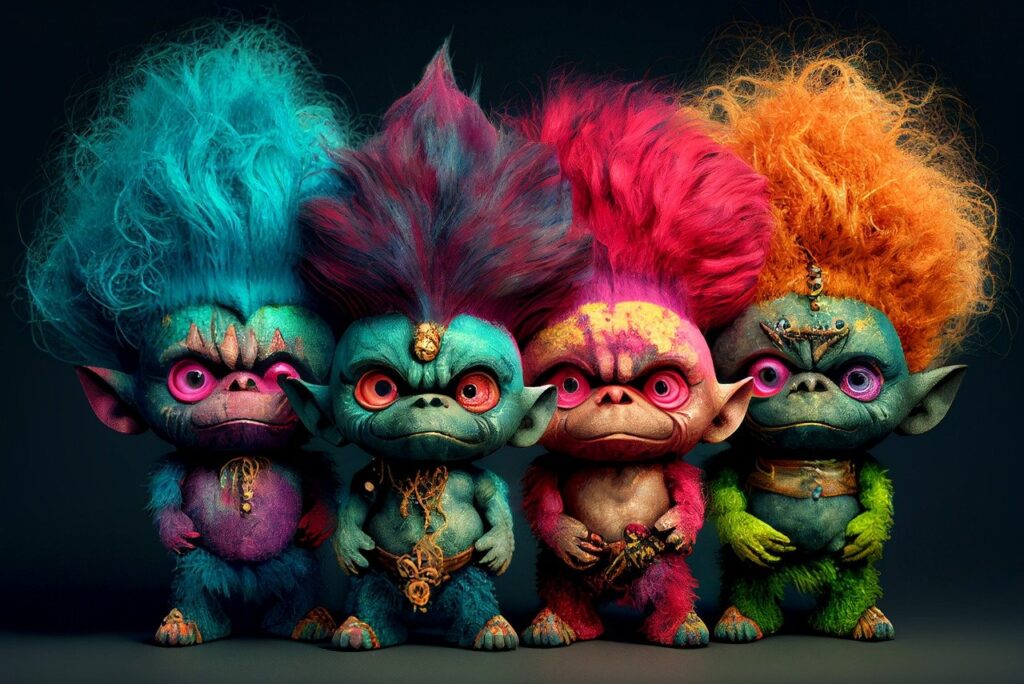Hello! I’m James, a.k.a. Xucaen In Space Brain. Today, I invite you to explore a transformative perspective on one of the most misunderstood online phenomena: trolling. When you think of trolls, do you envision negativity, disruption, and provocation? Have you ever wondered if those same techniques could be repurposed to create joy, encouragement, and kindness? In this document, we’ll delve into the concept of “positive trolling”—an approach that redefines traditional trolling to sprinkle positivity. What motivates people to troll? Can trolling behaviors be redirected for good? How does the psychology behind trolling lend itself to this new purpose? These questions and more will guide us as we navigate this intriguing topic.
Harnessing the Power of Positive Trolling: Transforming Online Interactions for Good
In today’s digital age, the term “trolling” often conjures images of disruptive behavior intended to provoke and upset. However, what if trolling could be redefined to serve a more benevolent purpose? Positive trolling emerges as a revolutionary concept that uses the tactics traditionally associated with trolls to sprinkle positivity, kindness, encouragement online. This approach takes the element of surprise—a hallmark of trolling—and redirects it toward uplifting and constructive outcomes.
The adage “Smile and the world smiles with you” has a surprising basis in psychology. The act of smiling triggers your brain into releasing happiness hormones, relieving stress, and improving your state of mind. Because your brain processes emotions based on your facial movements, smiling really can lift your mood. When you smile, your brain always reacts the same way. It doesn’t matter whether you’re smiling because you’re amused, because someone smiled at you, or because you simply choose to smile. Smiling tells your brain that you’re feeling good.
Positive trolling involves engaging with others on the internet in unexpected, uplifting ways. Instead of sowing discord, positive trolls aim to brighten someone’s day, offer support, or inject humor into a conversation to diffuse tension. For instance, encountering someone ranting about a bad day might present an opportunity to respond with a humorous yet empathetic comment, lightening their mood and altering their perspective. Similarly, using online platforms to share genuine messages of appreciation or compliments in appropriate and respectful ways can uplift others and help build a positive sense of community. In online gaming communities, where trolling is prevalent, positive trolling might involve playful actions that amuse fellow players without causing harm or frustration, thereby fostering a fun and friendly environment.
Psychological Benefits of Positive Trolling
Engaging in positive trolling provides significant psychological advantages for both the initiator and the recipient. Acts of kindness, even small ones, have been shown to increase happiness and reduce stress for everyone involved. By sprinkling positivity, individuals contribute to a more supportive online environment, enhancing overall well-being. Additionally, positive interactions strengthen social bonds and create a sense of belonging within online communities, a crucial factor in reducing feelings of isolation in digital spaces. Promoting positive behavior can also help counteract the prevalence of negative trolling. Setting examples of kindness encourages others to adopt similar behaviors, gradually shifting the online culture toward a more supportive atmosphere.
Research highlights the importance of humor and positive interactions in psychological well-being. Adaptive humor styles, such as affiliative and self-enhancing humor, correlate with better self-esteem, lower levels of depression, and greater social connectivity. By incorporating positive humor into online interactions, individuals can foster a healthier digital environment while benefiting psychologically themselves.
Motivations Behind Trolling
To understand how trolling can be redirected positively, it is essential to examine the motivations behind it. Trolls engage in this behavior for various psychological, social, and emotional reasons, ranging from harmless mischief to deeply rooted insecurities or social dynamics. Common motivations include seeking attention, exerting power and control, taking advantage of anonymity, alleviating boredom, or projecting personal frustrations. In some cases, trolling may reflect cultural or group norms where such behavior is normalized, or it may stem from low empathy or sociopathy. Regardless of intent, these behaviors often share common roots in human psychology.
Viewing trolling as a behavior rather than a fixed identity provides critical insight. It becomes apparent that trolling is situational, arising from specific circumstances rather than inherent traits. For instance, someone having a bad day might lash out online, engaging in trolling not as an expression of their personality but as a temporary outlet for frustration. Similarly, the anonymity and disinhibition provided by the internet allow individuals to act in ways they might not in face-to-face interactions. These factors demonstrate the universality of trolling behaviors, emphasizing that it’s something most people are capable of under the right conditions.
The Evolution of Trolling: From Malice to Mischief
The term “trolling” has dual origins, rooted in both fishing terminology and mythology. In fishing, trolling refers to dragging baited lines through the water to attract fish, which parallels the act of “casting bait” online to provoke emotional responses. In mythology, trolls are depicted as mischievous and menacing creatures lurking in dark places to disrupt passersby. These dual origins highlight the malicious and provocative nature of trolling, as well as its potential for playfulness and creativity.
Trolling behaviors, like pranks or chain letters, often stem from a desire to explore boundaries, provoke reactions, and express individuality. While these actions can occasionally cross into malice, they are frequently driven by creativity, playfulness, and the human penchant for social experimentation. For example, playful trolling in gaming communities might involve intentionally humorous in-game behaviors that amuse others rather than disrupt gameplay. This reframing of trolling as a modern form of mischief reveals its potential for positive impact.
The Role of Perception in Trolling
Perception plays a significant role in how trolling behaviors are interpreted. Psychological research suggests that our reactions to trolling often reflect our emotional state rather than the troll’s true intent. For example, encountering a sarcastic comment while in a negative mood might lead us to perceive it as malicious trolling, whereas the same comment might appear playful or humorous in a positive frame of mind. This dynamic underscores the importance of pausing to reflect before reacting to perceived trolling. Techniques such as cognitive reframing, which encourages interpreting negative stimuli in a neutral or positive light, can help disrupt cycles of negativity and foster constructive online interactions.
Famous Examples of Mischief
Throughout history, pranksters and mischievous figures have demonstrated the power of humor and creativity to entertain and challenge norms. From the Jerky Boys’ absurd prank calls to Sacha Baron Cohen’s satirical interviews as Ali G, these individuals highlight how humor can provoke thought, spark conversations, and bring people together. Similarly, shows like Candid Camera and Impractical Jokers celebrate playful mischief as a means of fostering connection and shared amusement. Even fictional characters like Bart Simpson exemplify how pranks and playful disruption can reflect the human drive for creativity and social engagement.
Conclusion
While the internet often feels overwhelmed by negativity, the concept of positive trolling demonstrates that the same tools used to disrupt can be repurposed to build and uplift. By embracing this approach, we can transform online spaces into more compassionate and enjoyable environments. Whether through anonymous compliments, playful engagement, or reframing perceptions, positive trolling harnesses the creative and playful aspects of human nature for good. As we navigate the complexities of digital interactions, let us remember that even the smallest acts of kindness and humor can ripple outward, fostering connection and joy in an increasingly digital world. So the next time you encounter an internet troll, make them smile! They’ll never see it coming. 😉


Leave a Reply